Director Gerry Nelson has developed an addiction after taken a big sip of hurling kool-aid.
He, along with Crossing The Line Productions, is responsible for the highly acclaimed three-part documentary series ‘The Game,’ which concluded earlier this week. He had no major connection with the sport prior to getting involved in the project but he’s now happily hooked on the small ball game.
"I thought it was going to be a simple programme about a stick and a ball. The fool I was. It’s a funny sport and it’s kind of got under my skin," he tells RTÉ Sport.
‘The Game’ was made over the course of two years and consisted of some 58 interviews that lasted between two and three hours each and some even went beyond the three-hour mark.
The entire length of the footage is measured in terabytes rather than hours according to Nelson, and rather than bore you with getting technical about the storage space in a terabyte, it’s best to advise that there was a mammoth number of clips in total.
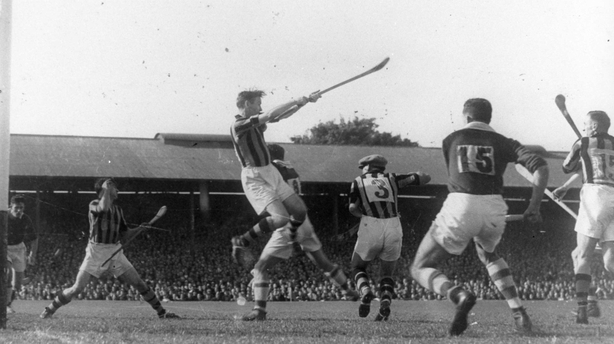
It became a much bigger endeavour than what Nelson initially envisaged, but he felt obligated to put the time in. Much like the modern hurler who dedicates their lives to the sport in the pursuit of glory, Nelson invested a similar amount of time into making a documentary that paid an appropriate tribute to hurling.
"I basically did a Masters or PHD in hurling because I’ve basically done nothing else for two years except hurling. It was seven days a week and two days off at Christmas. It literally consumed me because it’s a fascinating subject and you’re talking to fascinating people who are at the top of their game.
"We’re in a country that plays minority sports and these characters play a minority sport within a minority sport. It was the purist form of the Corinthian ideal of playing for the greatness of it – faster, higher, stronger fo the love of doing it. And that is incrediby infectious.
"You constantly find yourself not wanting to let the game down. Our version of the stick and ball game is unique to us and it’s part of our identity. You realise you’re dealing with something slightly sacred."
Nelson felt that ‘The Game’ didn’t need a narrator’s voice and allowed the words of the interviewees direct the flow of the narrative for authenticity.
He conducted all of the interviews himself and spoke to a variety of characters, as viewers discovered throughout the three episodes.
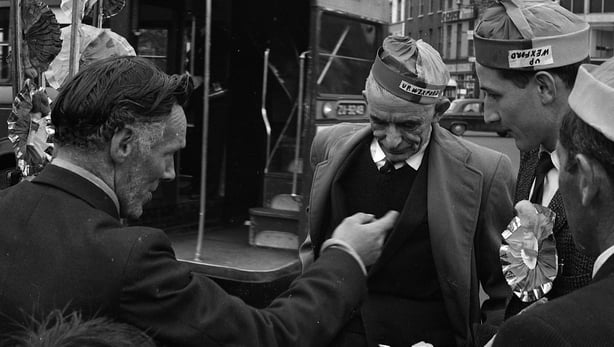
The current and former players offered profound and interesting insights into playing the game, while historians and poets offered an academic explanation of hurling’s place in society and how it evolved through the years.
Nelson did all of the required research. He read the books and scoured through the archives to get a general feel for hurling but he didn’t have the years of participation behind him to call himself a 'hurling man'. And he certainly didn’t have the knowledge that his interviewees possessed.
But he was content to be coming in as an outsider, and simply presented himself as someone who was curious about this sport and had many questions to ask.
All those factors blended together nicely to make for an interesting sequence of conversations.
"When I met Liam Griffin, I told him my name and said I knew nothing about hurling. He admitted later that he didn’t know how it was going to play out but I’ve come to the interview completely armed and I know their story. And I know what the perceived story is.
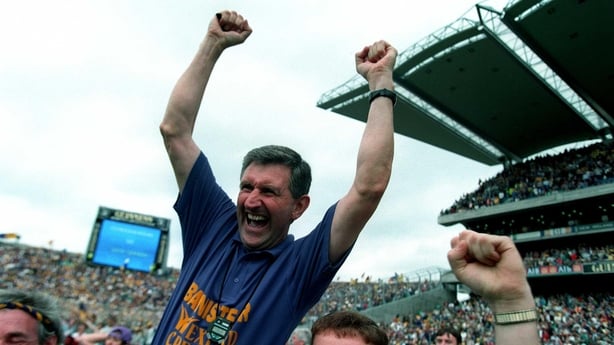
"But then you kind of find your own degrees of fascination and wonder how certain things happened. You just end up having a bit of a conversation.
"I do talk a good amount with them because I don’t feel it’s a question and answer kind of situation, I feel we’re dialoging and I’m trying to discover what makes them tick.
"Joe Canning thought he was talking for 20 minutes and he was [actually] about 40 minutes. I’m shooting them myself and I’ve set it up that I light it, shoot it and do the sound myself. It’s the person and me in a room and I use a box that allows them to look directly into my face.
"I just wanted to give people time. A lot of the time when you interview sports people, you interview them in kind of a sports context so they don’t have a lot of time to just ruminate to chat and think and wax on about a subject.
"That’s the thing about documentaries, you’re giving people time and space.
"I just let them talk."
The documentary touched on several different aspects of hurling. The origins of stick and ball games, the influence of Michael Cusack, the iconic journeys to Liam MacCarthy glory, the almost mythical figures like Christy Ring and Mick Mackey and the actual mythical story of Cú Chulainn, are all covered.
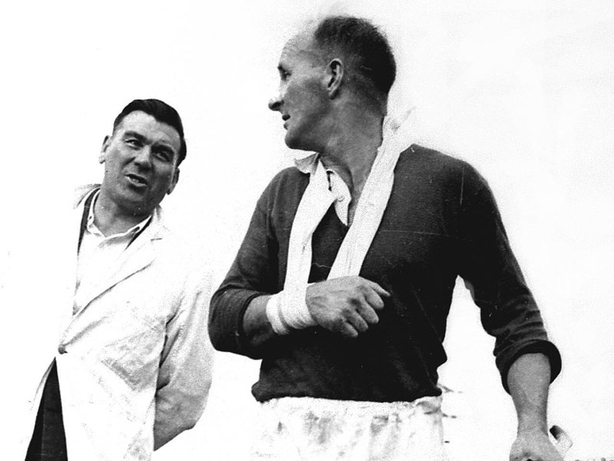
Other fundamental elements like the Poc Fada and the making of the hurl feature at different stages too.
Through Seán Óg Ó Hailpín’s account however, we also discover how hurling can truly influence the direction of someone's life. The sport became a tool for him to adjust to life in Cork after emigrating from Sydney as a child when he wanted to be with the new friends he had made in Ireland.
There were several moments in the interviews which stopped Nelson in his tracks, and the Ó Hailpín conversation was certainly memorable for him.
"What you quickly realised with Seán," Nelson explains, "was that the river runs pretty deep there and I had to really let him [talk]. He was over three hours.
"He’s the kind of guy when you ask a question, there’s a pause and you know he’s not just going to give you an answer, he’s thinking about it. And he comes out with this incredible stuff.
"A lot of times when you’re filming, you’re not really thinking about whether it’s interesting but this was one of the few times where you he had gone to an amazing place because I started realising that he was the reliable narrator. He was in it and he journeyed it.
He continues: "Some hurlers couldn’t quite do that because they were born with a hurley in their hand and he had to make a conscious decision that he was going to commit himself to this.
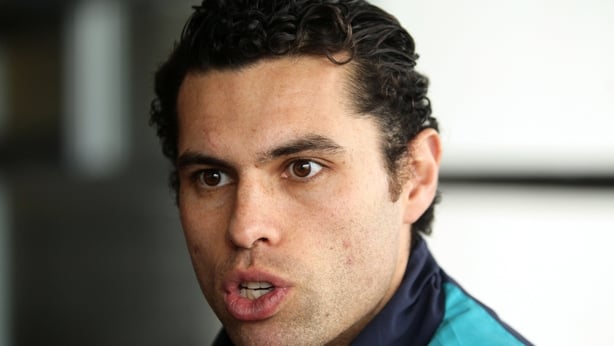
"You see that in this man’s journey, this world has changed. I know that Ireland and how it has changed. It was bleak but part of it as well, he was a sporty guy and he realised he wasn’t going to be able to do anything unless he did the game with his mates.
"As a result, he became identified because of the jersey. I’m sure there’s a deeper element there that the community grew a bit with that and then suddenly, he stopped being that kid and he became the kid who plays for that team."
In the final episode, 'The Game' explores the origins of camogie which includes clips of an interview with Kilkenny legend Angela Downey who Nelson found to be a fascinating character.
Nelson confesses that he mistakenly assumed that camogie was a separate game in the early stages of the documentary before gradually coming to understand its connection to hurling.
"I’m always happy to be stupid and wrong and I think that’s my saving grace in life. So that’s when you meet the women hurlers and realise they all played with the guys when they were young.
"Eimear Ryan tells it brilliantly that she kept playing with them until she litterally got shouldered off the ball once.
"And then you meet Angela Downey-Browne and you basically see a striker, a killer. She’s got the goals in her eyes. She describes it brilliantly.
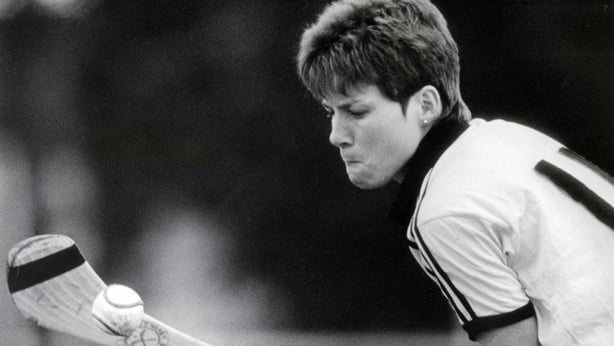
"I would have loved to have seen her in action because you just have bad archive. You have Ashling Thompson and Rena Buckley, and I would have loved to have seen Angela in that kind of imagery.
"The history was moving along in a certain direction and I realised I was going to have to go backwards to start that story. We were really trying to bide our time about when to go into something to come back.
"The programme could be another hour long for sure."
Nelson has been making documentaries for some 30 years, covering a multitude of subjects including music and history in that time.
He also has experience in making wildlife programmes, a chapter of his career which he utilised effectively when making the film reels for 'The Game.'
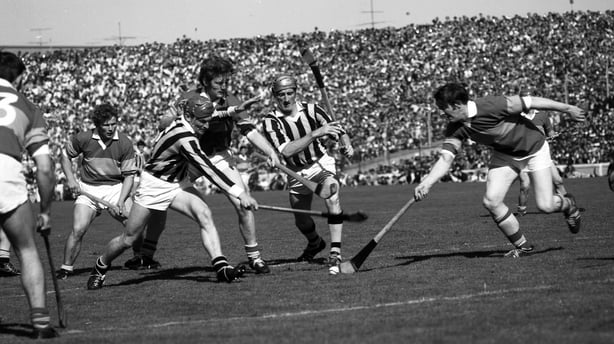
"Everything is in slow-mo, apart from the interviews to capture the action. When you shoot wildlife, you pretty much film everything in slow-mo and then make up all the sounds in production afterwards. It’s a stunning piece of work.
"Every hit, every tackle has been remade which is like a feature film. That’s the attitude and sensibility we brought to this. It wasn’t a case of plonking a camera down and filming.
"Huge amounts of effort were put into the pictures and I think they jump out of the frame and that’s just something you can do with this kind of filming."
'The Game' has been well received since going to air with many people in agreement that it captured the essence of hurling and why it is knitted so deeply into the fabric of Irish society.
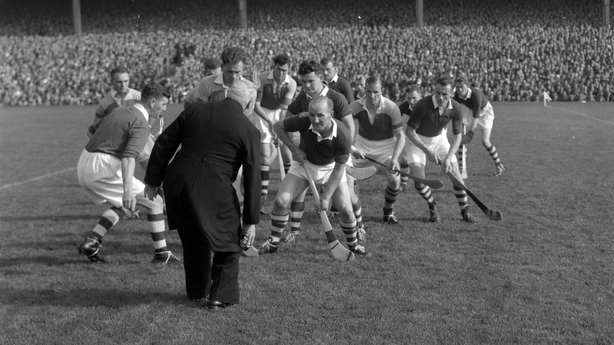
The timing of its arrival has added to the success too considering that one of the best hurling championships in recent memory comes to a conclusion this weekend when Galway and Limerick contest the All-Ireland final.
The only question that remains now is when will Nelson and Crossing The Lines Productions begin working on the football version of 'The Game?'
"We’re planning it at the moment," says Nelson. "Our commissioning editor has been talking about it. And Twitter keeps asking that question so it seems like the natural thing to do.
"But it took us two years to make the hurling one so it’ll be a while. I think football will tell a different story of Ireland and the originating of a game. Also, it’ll be an all Ireland story.
"It feels like the thing to do."
Follow the All-Ireland senior hurling final via our live blog on RTÉ.ie and the News Now App, watch television coverage on The Sunday Game Live, RTÉ 2, from 2.15pm or listen to exclusive national radio commentary on Sunday Sport, RTÉ Radio 1. Highlights on The Sunday Game at 9.30pm on RTÉ 2.

